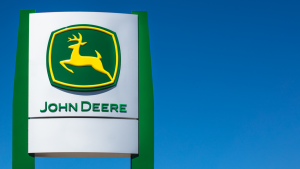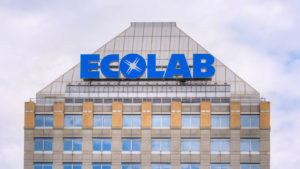During times of extreme volatility, even the most seasoned investors may struggle to pick safe stocks to buy for the long run. In such periods, it may be inspiring to review the stocks held by the Gates Foundation, which we will refer to as Bill Gates stocks.
Established in 2000, the Bill & Melinda Gates Foundation is among the largest private philanthropic foundations worldwide. It aims to “create a world where every person has the opportunity to live a healthy, productive life.”
Meanwhile, the Bill & Melinda Gates Foundation Trust, a separate entity, manages the foundation’s assets. Understandably, it invests in businesses with the potential for long-term growth.
The Gates Foundation had a portfolio of 18 holdings in the first quarter, with roughly $19.8 billion in net assets, according to its latest 13F filing with the U.S. Securities and Exchange Commission (SEC).
With that information, here are seven of the best Gates Foundation stocks to buy in the second half of the year:
| BRK-B | Berkshire Hathaway | $281.56 |
| CNI | Canadian National Railway | $107.76 |
| DE | Deere | $324.90 |
| ECL | Ecolab | $152.79 |
| MSFT | Microsoft | $242.26 |
| SDGR | Schrodinger | $23.13 |
| WM | Waste Management | $147.86 |
Berkshire Hathaway (BRK-A, BRK-B)

52-Week Range: $270.73 – $362.10
Warren Buffett’s Berkshire Hathaway (NYSE:BRK-A, NYSE:BRK-B) is among the largest conglomerates worldwide. It has over a dozen subsidiaries across a variety of sectors and also maintains significant minority holdings in other giants.
Warren Buffet has been the CEO and largest shareholder since 1970. InvestorPlace.com readers may be interested to know that over half of the portfolio of the Gates Foundation is invested in Berkshire Hathaway stock. Also, the group has recently made an investment into Citigroup (NYSE:C) that has grabbed headlines.
In late April, Berkshire Hathaway reported first-quarter financials. Total revenue increased 9.6% year-over-year (YOY) to $70.8 billion. Net earnings per Class B share stood at $2.47, compared to $5.09 a year ago. Cash and equivalents ended the quarter at $35.5 billion.
Recently, the company announced plans to acquire Alleghany (NYSE:Y), a holding company that primarily focuses on insurance. Alleghany also holds interests in middle-market companies and real estate through Alleghany Capital and Alleghany Properties.
BRK-B stock is down 6% in 2022 and down 2% over the past year. By comparison, the S&P 500 has lost over 20% year-to-date (YTD).
Shares are trading at 22.9 times forward earnings and 1.95 times sales. The 12-month median forecast for Berkshire Hathaway stands at $373.
Canadian National Railway (CNI)

52-Week Range: $ 100.66 – $137.19
Quebec-headquartered transportation giant Canadian National Railway (NYSE:CNI) is a freight railway that serves Canada and parts of the U.S. Its rail lines span Canada from coast to coast and down into the American Midwest and South.
The company services some 20,000 miles of track. It also transports approximately 250 billion CAD worth of goods annually.
In late April, Canadian National released Q1 results. Revenue came in at 3.7 billion CAD, representing a 5% increase YOY. Adjusted diluted earnings per share (EPS) was 1.32 CAD, up 7% from 1.23 CAD a year ago. Free cash flow (FCF) stood at 571 million CAD.
The group recently proposed the divestiture of the “Kansas City Speedway” from a recent merger between Canada Pacific Railway (NYSE:CP) and Kansas City Southern. The proposed agreement will allow CNI to take over a parallel line created from the merger, increasing competition in the region. If accepted, the proposal is likely to generate substantial revenue.
CNI stock is down more than 12% YTD but only -2% over the past year. The current price supports a dividend yield of 2.1%.
Forward price-to-earnings (P/E) and price-to-sales (P/S) metrics are 21x and 7x, respectively. Lastly, the 12-month median forecast for Canadian National Railway stock is at $133.77.
Deere (DE)

52-week range: $307.64 – $446.76
Deere (NYSE:DE) is one of the most prominent manufacturers of heavy machinery, specializing in agriculture, construction and forestry. Its flagship brand is John Deere. Industrial shares, including Deere, comprise about a third of Bill Gates stocks.
On May 20, Deere put out Q2 earnings. Revenue increased 11% to $13.37 billion. As a result, fully diluted EPS increased to $6.81 per share, up from $5.68 in the prior-year quarter. Cash and equivalents ended the quarter at $3.88 billion.
Recently, the company secured a partnership with GUSS Automation. GUSS, which stands for “Global Unmanned Spray System,” is a semi-autonomous spraying system used in agriculture.
This partnership will allow GUSS Automation to sell its devices through the John Deere sales channel, increasing revenue for both companies. As a result, Deere management raised its full-year earnings forecast to $7 billion to $7.4 billion, including special items.
DE stock is down 5.3% YTD and 5% over the past year. It currently generates a 1.3% dividend yield.
Shares are trading at 13.8 times forward earnings and 2.2 times trailing sales. The 12-month median forecast for Deere stands at $419.
Ecolab (ECL)

52-Week Range: $152.20 – $238.93
Ecolab (NYSE:ECL) develops technologies for water treatment and purification, cleaning and hygiene. It services roughly 3 million locations and holds more than 10,000 patents.
On April 26, Ecolab released Q1 financials. Revenue increased 13% YOY to $3.3 billion, fueled in part by substantial volume gains. It has also been able to raise prices to overcome soaring cost inflation.
Adjusted diluted EPS came in at 82 cents, compared to 81 cents the year before. Cash and equivalents ended the period at $99.4 million.
Management recently unveiled plans to build a wind farm on the western coast of Finland. The five-turbine farm will bring Ecolab’s sustainable energy to 100% in Europe and 80% overall. In addition, the wind farm is expected to lower energy costs.
ECL stock is down 35% YTD and 29% over the past year. The dividend yield currently sits at 1.3%.
Forward P/E and P/S metrics are 30.6x and 3.5x, respectively. Meanwhile, the 12-month median forecast for Ecolab is at $193.
Microsoft (MSFT)

52-Week Range: $244.23 – $349.67
Tech giant Microsoft (NASDAQ:MSFT) is known for its portfolio that includes the Windows operating system, Office, Azure Cloud Computing and Xbox gaming. With a market capitalization (cap) of well over $1 trillion, it is the second most valuable company on the S&P 500 index. Understandably, MSFT is one of the Bill Gates stocks to review today.
In late April, Microsoft released Q3 metrics. Revenue increased 18% YOY to $49.4 billion. Wall Street was pleased to see that server products and cloud services revenue increased 29% YOY, driven in part by Azure.
Adjusted diluted EPS increased 14% YOY to $2.22, up from $2.03 in the prior-year quarter. Cash and cash equivalents totaled $12.5 billion. The board also returned $12.4 billion to shareholders via stock repurchases and dividends.
In addition, the tech giant has recently announced a slate of new partnerships. For example, a collaboration with Mastercard (NYSE:MA) is expected to enhance identity protection for its cardholders. Additionally, Kraft Heinz (NASDAQ:KHC) is taking steps to enhance its supply chain logistics with Microsoft technology.
So far in 2022, MSFT stock is down around 28%. That narrows to -5% over the past year. Forward P/E and P/S metrics stand at 23.4x and 9.9x, respectively. Finally, the 12-month median forecast for Microsoft is $350.
Schrodinger (SDGR)

52-Week Range: $ 20.71 – $79.75
Life sciences play Schrodinger (NASDAQ:SDGR) has been making headlines with its artificial intelligence (AI)-based computational software. Pharmaceutical companies rely on its platform to evaluate chemical compounds digitally. Additionally, Schrodinger maintains a pipeline of collaborative and internal research into new drugs.
On May 4, the company released Q1 results. Revenue came in at $48.7 million, up 51% YOY. Net loss stood at $34.5 million, or 48 cents per share, compared to a net loss of $500,000 a year ago. Cash and equivalents ended the quarter at $117.3 million.
Recently, Schrodinger presented new pre-clinical data showing that its Wee1 inhibitor displayed anti-tumor properties. As it was effective both alone and in tandem with other cancer treatments, the inhibitor could be a significant step in the eventual launch of the drug to market.
For 2022, total revenue is forecast to range from $161 million to $181 million. That figure would represent a 17% to 31% YOY growth.
SDGR stock is down 33% YTD and down 70% over the past 12 months. Shares are changing hands at 11.4 times sales. The 12-month median forecast for Schrodinger is $67.50.
Waste Management (WM)

52-Week Range: $136.97 – $170.18
Waste Management (NYSE:WM) is one of the largest garbage collection providers stateside, servicing about 20 million customers. It also operates a robust landfill-gas system, turning the gas into beneficial services such as electrical power.
In late April, Waste Management issued Q1 earnings. Revenue increased from $4.11 billion to $4.66 billion. Adjusted diluted EPS soared to $1.29, up from $1.06 in the previous year. FCF stood at $845 million.
Recently, management announced an $825 million investment into renewable energy generated by landfill gas. This investment should offer enough electricity to power around 1 million homes and fuel its entire fleet by 2026. Analysts also expect it to reduce operating costs while creating revenue from electricity generation.
WM stock is down 11% YTD, but up almost 6% over the past year. It also generates a 1.7% dividend yield. Forward P/E and P/S metrics are 27.9x and 3.5x, respectively. Finally, the 12-month median forecast stands at $173.
On the date of publication, Tezcan Gecgil did not have (either directly or indirectly) any positions in the securities mentioned in this article. The opinions expressed in this article are those of the writer, subject to the InvestorPlace.com Publishing Guidelines.
